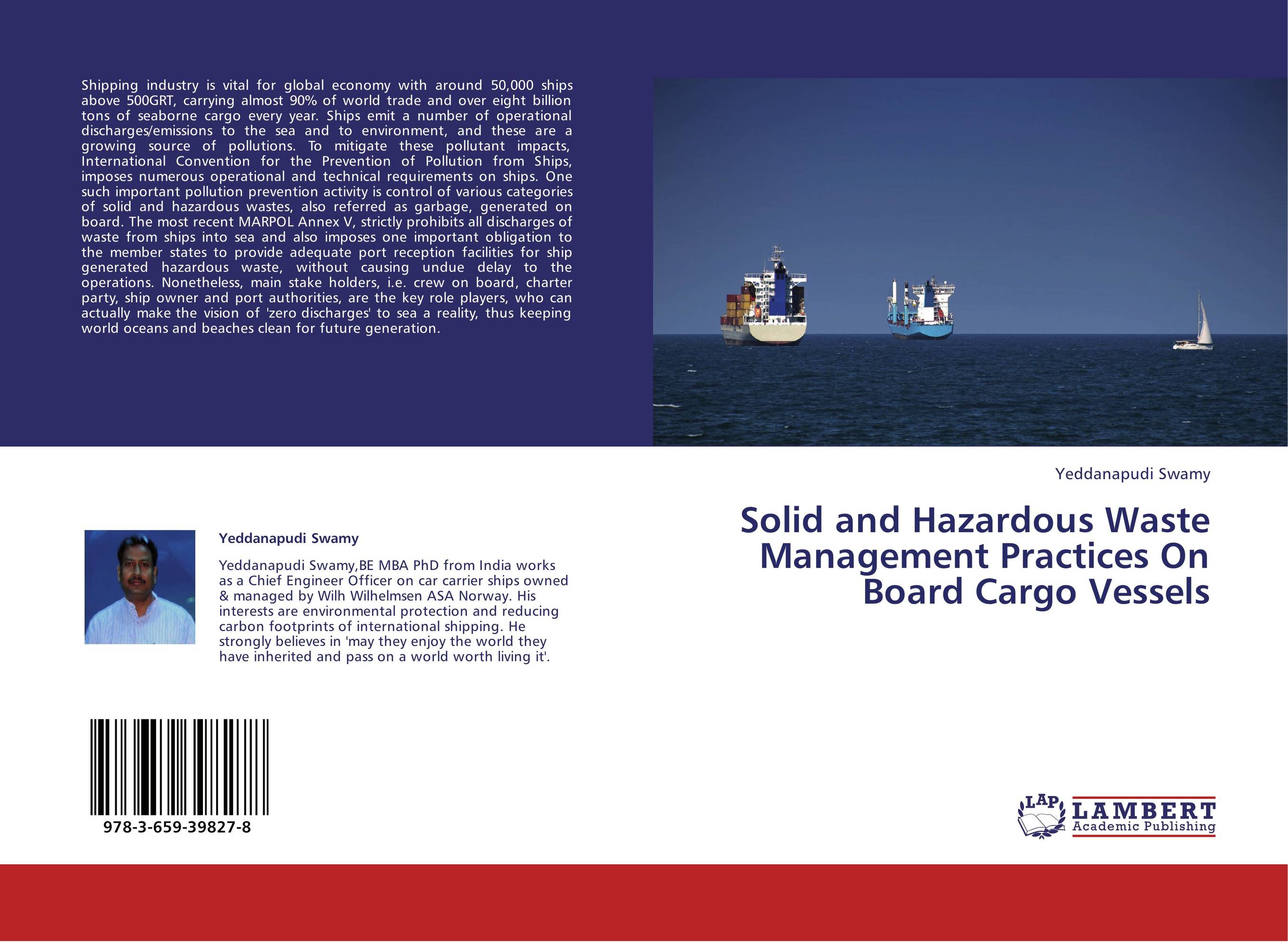| Поиск по каталогу |
|
(строгое соответствие)
|
- Профессиональная
- Научно-популярная
- Художественная
- Публицистика
- Детская
- Искусство
- Хобби, семья, дом
- Спорт
- Путеводители
- Блокноты, тетради, открытки
Solid and Hazardous Waste Management Practices On Board Cargo Vessels.

В наличии
| Местонахождение: Алматы | Состояние экземпляра: новый |

Бумажная
версия
версия
Автор: Yeddanapudi Swamy
ISBN: 9783659398278
Год издания: 2013
Формат книги: 60×90/16 (145×215 мм)
Количество страниц: 72
Издательство: LAP LAMBERT Academic Publishing
Цена: 16952 тг
Положить в корзину
| Способы доставки в город Алматы * комплектация (срок до отгрузки) не более 2 рабочих дней |
| Самовывоз из города Алматы (пункты самовывоза партнёра CDEK) |
| Курьерская доставка CDEK из города Москва |
| Доставка Почтой России из города Москва |
Аннотация: Shipping industry is vital for global economy with around 50,000 ships above 500GRT, carrying almost 90% of world trade and over eight billion tons of seaborne cargo every year. Ships emit a number of operational discharges/emissions to the sea and to environment, and these are a growing source of pollutions. To mitigate these pollutant impacts, International Convention for the Prevention of Pollution from Ships, imposes numerous operational and technical requirements on ships. One such important pollution prevention activity is control of various categories of solid and hazardous wastes, also referred as garbage, generated on board. The most recent MARPOL Annex V, strictly prohibits all discharges of waste from ships into sea and also imposes one important obligation to the member states to provide adequate port reception facilities for ship generated hazardous waste, without causing undue delay to the operations. Nonetheless, main stake holders, i.e. crew on board, charter party, ship owner and port authorities, are the key role players, who can actually make the vision of 'zero discharges' to sea a reality, thus keeping world oceans and beaches clean for future generation.
Ключевые слова: Regulations, shipping, storage, Disposal, Garbage, solid and hazardous waste management plan, port reception facilities, en-route, documentation and implementation.



